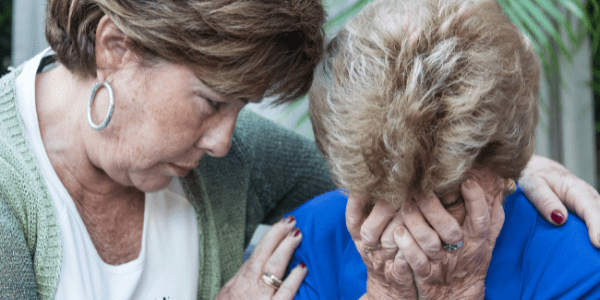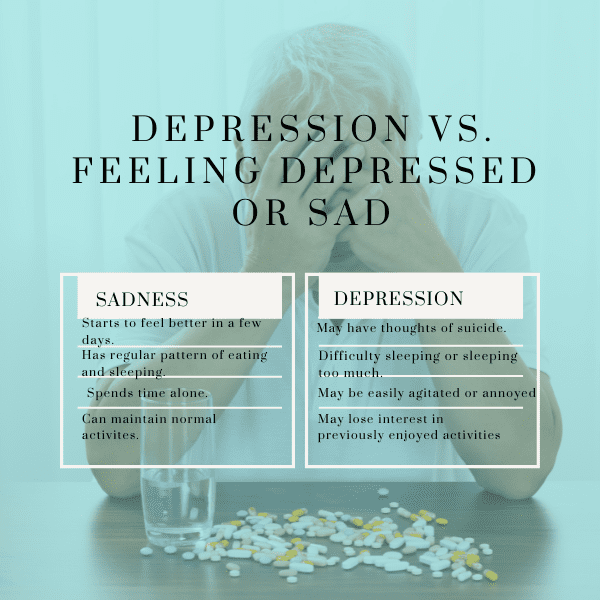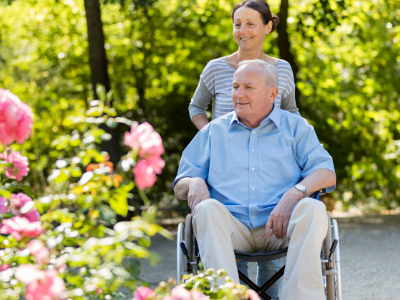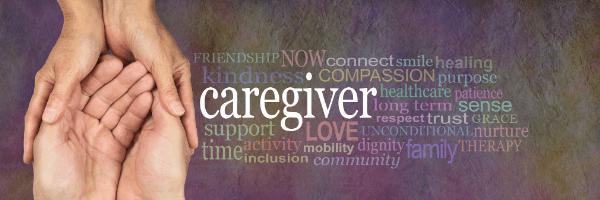5 Ways to Cope With Caregiver Guilt
What is Caregiver Guilt?
Caregiving for a loved one or elderly parents can be one of the most rewarding but stressful things in life. Caregiver guilt can come about when caregivers see their loved ones suffer, and at times, a caregiver may feel like they are not doing enough.
When a caregiver is overwhelmed with giving support and help to a loved one, caregiver guilt adds even more stress to an already stressful situation.
For instance, a caretaker may not be in the position to provide all the care that a loved one needs. They may need specialized care or 24-hour care. A caregiver may decide that a long-term care facility is best. However, the loved one that needs care may disagree and make it very difficult for the family caregiver.
In addition to having to place a family member in a care facility, caregiver guilt can come about when a carer feels like they lost valuable time with their loved one when they were healthy. Adult children are often busy with daily activities, and all of a sudden, life can pass by quickly.
Along with caring for daily activities, caregivers may also be battling health issues that take them away from caring for grandparents or other loved ones. Neglecting their loved ones at the expense of their health can also add to caregiver guilt.
Emotionally a caregiver can be burned out from caring for someone. Coping skills will help a caregiver continue to care for aging family members and not neglect taking care of yourself.
Coping with Caregiver Guilt

1. Recognize Feelings of Guilt
Acknowledging and understanding feelings of guilt can go a long way to helping a carer cope with such feelings. Talking with a trusted friend can help express those feelings and get to the bottom of why they feel guilty. Often, the caregiver may find those feelings are out of their control.
After identifying the problem, you can find a solution or find you are not alone with how you feel. Having a sound support system or even a support program can help you with the burden of caring.
2. Caregiver Self-Care
When someone is a primary caregiver, it could be easy to neglect their well-being. Poor sleep, eating habits, and a lack of exercise can become the norm. Therefore, caregivers must take some time out for themselves to rest and de-stress.
Here are tips for handling some of the common challenges for caregivers:
- Take time for yourself and your own needs. Watch for signs of stress, such as impatience, loss of appetite, or difficulty with sleep, concentration, or memory. Pay attention to changes in your mood, a loss of interest in usual activities, or an inability to accomplish usual tasks.
- Eat a well-balanced diet. Drink plenty of water every day.
- Exercise by taking short walks daily or at least three times a week.
- Listen to guided relaxation recordings or relaxing music.
- Schedule short rest periods between activities. Make it a priority to get a good night’s sleep.
- Set limits for what you can do.
- Don’t overload your daily to-do list. Be realistic.
- Find a few hours several times a week for activities that you find meaningful and enjoyable.
3. Get Support
Caregiver’s support can come in many ways. Family members can pitch in and help a caregiver from time to time. Peer support can help. Connecting with other caregivers who share the same circumstances will allow caretakers to vent their feelings and know they are not alone.
4. Take a Break
Taking a break and stepping away from caregiving will allow a caregiver to become refreshed mentally and avoid exhaustion. In addition, finding respite care services can give caregivers a break. Respite care can relieve caregivers so they can enjoy activities of their choosing.
Other support services may include hiring a private-duty caregiver to come in and care for a loved one at home.
5. Remember Why You’re Caring For a Loved One

The role of a caregiver can be described as an act of deep compassion and love. Taking care of grandparents or elderly parents is an act of self-sacrificing love. When times become difficult, reflect on why you are providing care. Remember all the time and love your loved one has shown to you.
When you provide care with love, not only will the care recipient feel it, but they will appreciate it in most cases. For example, suppose a caretaker cares for a loved one with Alzheimer’s disease or Dementia. In that case, they may not always tell a caregiver how much they appreciate the care they have received. Nevertheless, a carer will have a good conscience knowing they are doing what they can to provide care to a loved one.
For more information on how to receive help and support to cope with caregiver guilt and burnout, contact Alliance Medical & Home Care today!
Alliance Medical & Home Care has been providing affordable home care since 2007. We pride ourselves in being one of the best home care companies in Lexington, KY, and surrounding areas.
























